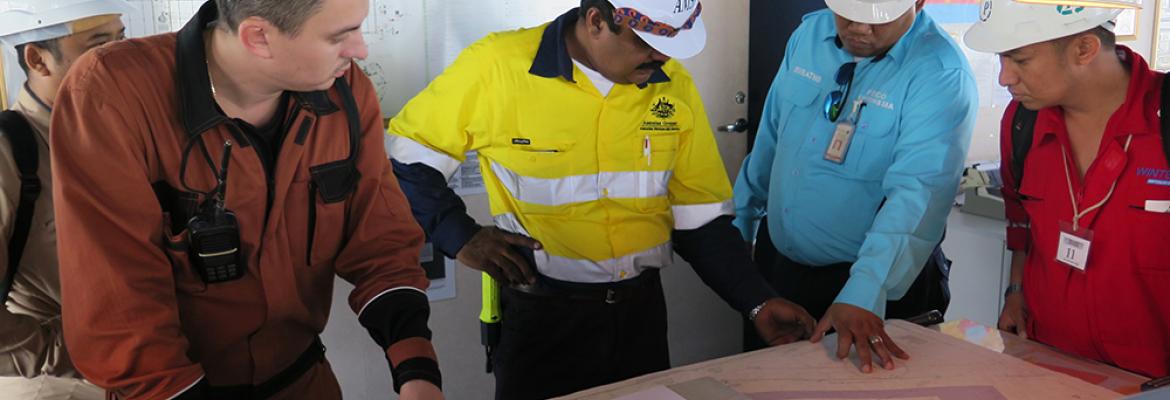Our international engagement
We are very active in influencing international ship safety, search and rescue protocols and marine environment standards and encouraging their effective implementation, which complements our own compliance regime applied to ships arriving in Australian ports. We also have an extensive program of bilateral and regional contact to ensure that the risk of maritime incidents in our own and neighbouring waters is minimised.
International Maritime Organization (IMO)
We are Australia’s lead at the IMO—the United Nations agency with responsibility for setting and maintaining international ship safety standards.
The IMO develops and maintains a comprehensive regulatory framework for shipping and its remit includes safety, environmental concerns, legal matters, technical co-operation, maritime security and the efficiency of shipping. Australia plays a key role at IMO as a founding member and elected representative on the 40-member IMO governing Council for more than 50 years.
Our approach to the IMO is shaped by the need to influence international standards and obligations to benefit our national interest. We also continue to implement our international obligations by ensuring they are reflected in our domestic legislation or administrative processes.
We also have a responsibility to ensure that our engagement in the IMO is consistent with Australia’s international policy objectives both in the United Nations system and more broadly. We continue to work across the Australian Government to ensure that we engage in the IMO not only in Australia’s maritime interests but for our wider strategic and economic interests.
Asia-Pacific Heads of Maritime Safety Agencies (APHoMSA)
We are the Secretariat for the Asia-Pacific Heads of Maritime Safety Agencies (APHoMSA) forum, which was established in 1996 to promote safe, secure shipping and a clean marine environment within the Asia-Pacific region. APHoMSA achieves this by bringing together senior maritime officials to build and maintain a strong understanding of shared maritime issues, identify and coordinate technical cooperation efforts and represent the region's interest in improving international standards.
International Organization for Marine Aids to Navigation
We are active in developing international standards through our work with other bodies such as the International Organization for Marine Aids to Navigation (IALA). IALA develops recommendations and guidelines which are recognised as international standards for the implementation and operation of aids to navigation. These standards help to ensure that the movements of vessels are safe, expeditious, cost-effective and minimise environmental impact.
Australia is a longstanding IALA council member and plays a leading role in IALA’s work in key areas such as Vessel Traffic Services (VTS) and e-Navigation.
IALA documentation
If you have received emails advising you of available IALA documentation login to the IMO/IALA confluence site. Contact us to request access to the system.
International Civil Aviation Organization
We coordinate aviation and search and rescue (SAR) operations for 10 per cent of the Earth’s surface. In collaboration with other Australian Government agencies we fulfil Australia’s obligations as a Council member of the International Civil Aviation Organization (ICAO). We participate in the ICAO/IMO Joint Working Group on the Harmonization of Aeronautical and Maritime SAR. The focus of the group is developing provisions for new SAR procedures and practices.
